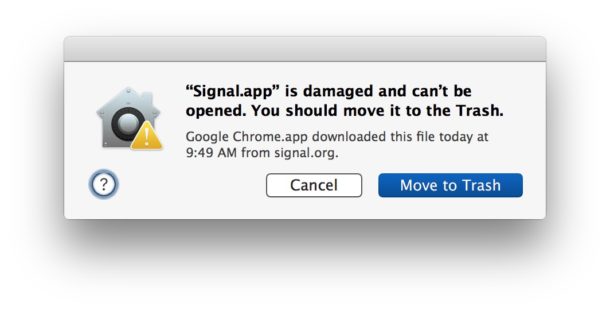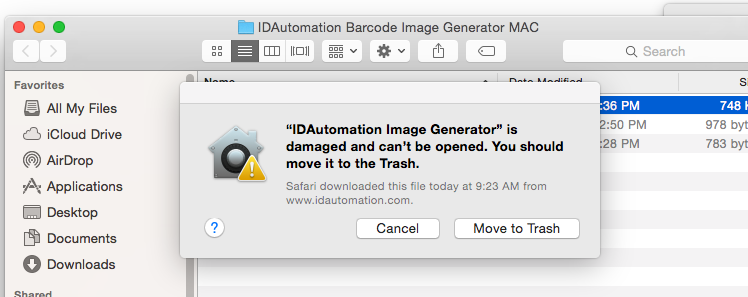Oct 09, 2019 I recently updated to Catalina (10.15) and I can't reinstall steam. Every time I download it and try it install it, it just says 'steamosx is damaged and cannot be opened. You should move. Jun 22, 2020 Apps are now allowed to be downloaded from “anywhere”, under the security and privacy preferences. When I try to open the app by simply clicking on it or even with the secondary/two finger click proceeded by clicking on “open”, it comes up with “is damaged and can’t be opened. You should move it to the Trash”.
You can bill in any currency, save time by setting up recurring invoices, allow customers to pay via credit card by checking a box, and even automatically bill their credit card to keep life simple for everyone.If you need more power, the system integrates with many other services, including PayPal, MailChimp, Basecamp, WordPress, Gusto, Zendesk and more.Management hassles are kept to a minimum. It's $15 a month, but only covers you for five clients.The Plus plan supports a more reasonable 50 clients, adds the ability to send proposals, and saves you time by providing recurring invoices and the option to automatically send payment reminders. You're able to access and use the system from your desktop or its free iOS and Android apps, and because it's a cloud-based system there's no need to worry about backups.If this sounds appealing, you can try FreshBooks for 30 days without using a credit card.The Lite plan gives you invoices, estimates, time tracking, expenses, plus the ability to accept online credit card payments and import expenses from your bank account. Best free accounting software for small business mac.
The safest place to get apps for your Mac is the App Store. Apple reviews each app in the App Store before it’s accepted and signs it to ensure that it hasn’t been tampered with or altered. If there’s ever a problem with an app, Apple can quickly remove it from the store.
If you download and install apps from the internet or directly from a developer, macOS continues to protect your Mac. When you install Mac apps, plug-ins, and installer packages from outside the App Store, macOS checks the Developer ID signature to verify that the software is from an identified developer and that it has not been altered. By default, macOS Catalina also requires software to be notarized, so you can be confident that the software you run on your Mac doesn't contain known malware. Before opening downloaded software for the first time, macOS requests your approval to make sure you aren’t misled into running software you didn’t expect.
Running software that hasn’t been signed and notarized may expose your computer and personal information to malware that can harm your Mac or compromise your privacy.
View the app security settings on your Mac
By default, the security and privacy preferences of your Mac are set to allow apps from the App Store and identified developers. For additional security, you can chose to allow only apps from the App Store.
In System Preferences, click Security & Privacy, then click General. Click the lock and enter your password to make changes. Select App Store under the header “Allow apps downloaded from.”
Open a developer-signed or notarized app
If your Mac is set to allow apps from the App Store and identified developers, the first time that you launch a new app, your Mac asks if you’re sure you want to open it.
An app that has been notarized by Apple indicates that Apple checked it for malicious software and none was detected:
Prior to macOS Catalina, opening an app that hasn't been notarized shows a yellow warning icon and asks if you're sure you want to open it:
If you see a warning message and can’t install an app
If you have set your Mac to allow apps only from the App Store and you try to install an app from elsewhere, your Mac will say that the app can't be opened because it was not downloaded from the App Store.*
If your Mac is set to allow apps from the App Store and identified developers, and you try to install an app that isn’t signed by an identified developer or—in macOS Catalina—notarized by Apple, you also see a warning that the app cannot be opened.
If you see this warning, it means that the app was not notarized, and Apple could not scan the app for known malicious software.
You may want to look for an updated version of the app in the App Store or look for an alternative app.
If macOS detects a malicious app
Mac App Damaged Move To Trash Catalina Island
If macOS detects that an app has malicious content, it will notify you when you try to open it and ask you to move it to the Trash.
How to open an app that hasn’t been notarized or is from an unidentified developer
Running software that hasn’t been signed and notarized may expose your computer and personal information to malware that can harm your Mac or compromise your privacy. If you’re certain that an app you want to install is from a trustworthy source and hasn’t been tampered with, you can temporarily override your Mac security settings to open it.
In macOS Catalina and macOS Mojave, when an app fails to install because it hasn’t been notarized or is from an unidentified developer, it will appear in System Preferences > Security & Privacy, under the General tab. Click Open Anyway to confirm your intent to open or install the app.

The warning prompt reappears, and you can click Open.*
The app is now saved as an exception to your security settings, and you can open it in the future by double-clicking it, just as you can any authorized app.
*If you're prompted to open Finder: control-click the app in Finder, choose Open from the menu, and then click Open in the dialog that appears. Enter your admin name and password to open the app.
What you need to know

- The release of macOS Catalina introduced a weird change for UK users.
- The Trash can is now going by the name 'Bin.'
- The change makes sense, but it's still sad to see the 'Trash' moniker go.
With macOS Catalina out, we're slowly discovering the little under there radar changes Apple introduced with its newest Mac software. One of the most comical changes that has been discovered is the renaming of the Trash can to the 'Bin' in the UK.
First spotted by Reddit user MrGray99, he posted a picture of the trash can with the name 'Bin.' Technically, Apple's new name makes more sense because it is actually a bin. Mac os mail app review. Trash is what you put in it.
However, since it has been officially called 'Trash' for so long, it's kind of a weird change.
In the past, Apple has made a big deal of the Trash can. When it unveiled the OS X (10.10) Yosemite complete redesign, it noted how long it took it to design a proper trash can with the new minimalist aesthetic that ditched the aluminum trash can of yesteryear.
App Damaged Move To Trash Mojave
This seems to be a slow effort on Apple's part to rename the trash can. A user in Australia noted Apple changed the name to Bin with macOS Mojave. Now the change has expanded to the UK with Catalina. Who knows where else the new name will reach next. Possibly the U.S.?
Regardless, the newly minted Bin will always be known as Trash in the hearts of UK Mac users.
We may earn a commission for purchases using our links. Learn more.
Lawsuit timeGoogle faces privacy lawsuit over tracking users in apps without consent
Law firm Boies Schiller Flexner has filed another lawsuit against Google. This time, the law firm has accused Google of tracking users in apps even after opting out.